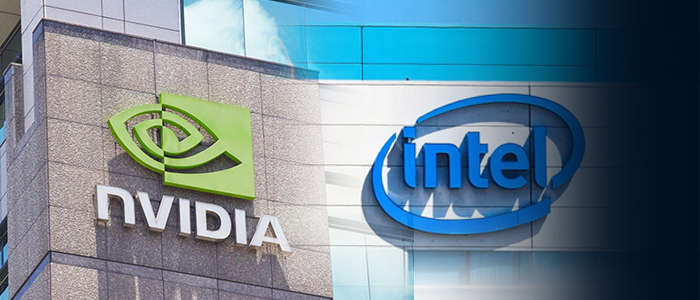Santa Clara, California, September 19, 2025- NVIDIA and Intel unveiled a landmark collaboration that combines their strengths in AI, GPUs, and CPUs to create new generations of computing products for both personal devices and data centers. The deal includes NVIDIA’s USD 5 billion purchase of Intel common stock at USD 23.28 per share, amounting to about a 5% stake, marking one of the largest cross-industry bets in the semiconductor sector’s history.
The partnership will focus on fusing NVIDIA’s accelerated computing and AI stack with Intel’s x86 ecosystem through NVLink, enabling seamless CPU–GPU integration. For data centers, Intel will design NVIDIA-custom x86 CPUs that NVIDIA will incorporate into its AI infrastructure platforms, targeting hyperscalers and enterprises. On the consumer side, Intel will launch x86 “RTX SoCs,” system-on-chips integrating its CPUs with NVIDIA RTX GPU chiplets, aimed at PCs and laptops with advanced AI capabilities. The first products are expected to reach the market in 2026.
“This historic collaboration tightly couples NVIDIA’s AI and accelerated computing stack with Intel’s CPUs and the vast x86 ecosystem, a fusion of two world-class platforms,” said Jensen Huang, founder and CEO of NVIDIA.
Intel CEO Lip-Bu Tan added, “Intel’s leading data center and client computing platforms, combined with our process technology, manufacturing, and advanced packaging capabilities, will complement NVIDIA’s AI leadership to enable breakthroughs for the industry.”
The announcement immediately shook markets. Intel’s stock surged 23%, its best single-day performance since 1987, while NVIDIA gained 3.5%. Analysts hailed the deal as a lifeline for Intel after years of losing ground in the AI era, even as it continues to receive outside backing, including a USD 9 billion U.S. government investment for a 10% stake and USD 2 billion from SoftBank.
Beyond strengthening Intel’s recovery in PCs, the move solidifies NVIDIA’s dominance in data centers, where AI workloads increasingly rely on hybrid architectures. Industry watchers say the alliance could pressure competitors such as AMD, whose shares fell on the news, while delivering thinner, faster, AI-ready laptops and more efficient data center systems.
Analyst Dan Ives described the deal as a “game changer” for Intel’s AI pivot, while Huang called it an “incredible investment.” The companies acknowledged regulatory approval as the next hurdle but emphasized the strategic importance of the partnership for U.S. chipmaking leadership.




